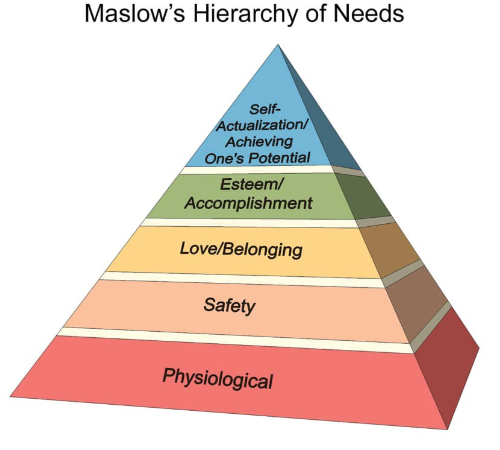- Sponsored -
How to stay motivated: 5 effective tips and tricks that will help you
Motivation is the drive to achieve your goals or needs but staying motivated isn’t always easy. Here are some tips you can try.

What is Motivation?
- Sponsored -
Motivation is what explains why people or animals initiate, continue or terminate a certain behavior at a particular time. Motivational states are commonly understood as forces acting within the agent that creates a disposition to engage in goal-directed behavior. It is often held that different mental states compete with each other and that only the strongest state determines behavior.
This means that we can be motivated to do something without actually doing it. Motivational states can also be categorized according to whether the agent is fully aware of why he acts the way he does or not, referred to as conscious and unconscious motivation. In the work goal context, the psychological factors stimulating the people’s behavior can be:
- desire for money
- success
- recognition
- job-satisfaction
- team work, etc
Types of Motivation:
- Intrinsic and Extrinsic:
Intrinsic motivation is when you engage in a behavior because you find it rewarding. When you’re intrinsically motivated, you engage in an activity solely because you enjoy it and get personal satisfaction from it.
Extrinsic motivation is when we are motivated to perform a behavior or engage in an activity because we want to earn a reward or avoid punishment. When you’re extrinsically motivated, you do something in order to gain an external reward. This can mean getting something in return, such as money, or avoiding getting into trouble, such as losing your job.
- Unconscious and Conscious:
The conscious-unconscious distinction plays an important role in Sigmund Freud’s psychoanalytical theories.[55] According to him, the unconscious contains various repressed parts of the mind, like anxiety-inducing thoughts and socially unacceptable ideas.
Freud relied heavily upon the theories of unconscious motivation as explained above. This approach has been criticized by Gordan Allport, who holds that conscious motives are the main source of motivation
How to stay Motivated?
Motivation is the drive to achieve your goals or needs but staying motivated isn’t always easy. Here are some effective tips that will surely help you.
1. Get motivated with Maslow’s Hierarchy of Needs:
Maslow’s hierarchy of needs is an idea in psychology proposed by Abraham Maslow in his 1943 paper “A theory of Human Motivation” in the journal Psychological Review. There are five different levels of Maslow’s hierarchy of needs, check it out:
- Physiological Needs:
Some examples of physiological needs include: Food, Water, Breathing, Homeostasis - Safety Needs
Some of the basic security and safety needs include: - Personal security
Emotional security, Financial security, Well-being - Love and Social Belonging Needs
Social belonging needs include: Family, Friendship, Intimacy, Social groups - Esteem Needs
Most people have a need for stable esteem, meaning which is soundly based on real capacity or achievement. - Cognitive Needs
Cognitive needs involve: Creativity, Predictability, Curiosity
2. Surround yourself with supportive people:
You must not just surround yourself with only people you look up to, but also with people who are chasing similar dreams. Those you spend the most time with have a huge influence on your moods. When you surround yourself with positive people, you’re more likely to adopt empowering beliefs and see life as happening for you instead of to you.
3. Read motivational books:
Motivational stories will encourage you to follow your dreams, treat others with kindness, and never give up on yourself. Storytelling is effective because it helps to establish connections among people, as well as between people and the ideas that unite humanity.
Here are some best motivational stories:
- Three Feet From Gold
- A Wise Man’s Jokes
- Teamwork
- The Weight of the World
- Seeking Happiness
- Frogs for Dinner
- Toothpaste Recant
- The Ultimate Test
- Breathing With No Air
- Cherish Your Struggles
4. Reward yourself every time you achieve your goals
Set goals all the time – daily, weekly, monthly, yearly, and ongoing goals that will influence you every day. Rewarding yourself in simple ways for small accomplishments can go a long way. Why? It’s all about dopamine. Dopamine is a type of neurotransmitter. Your body makes it, and your nervous system uses it to send messages between nerve cells. That’s why it’s sometimes called a chemical messenger. Dopamine plays a role in how we feel pleasure. It’s a big part of our uniquely human ability to think and plan.
Here are some examples of small rewards:
- Watching a movie
- Self-care
- Shopping
- Fresh flowers
- A nap
- Watch the sunrise or sunset
- A visit to a coffee shop
5. Give yourself breaks:
As humans, we often don’t let ourselves take sufficient breaks to let ourselves recuperate from our busy lives. If you’re not nice to you, who will be? Despite how you may feel sometimes, you are not of the superhuman variety and eventually, your mind, body, and spirit will fall. The ordinary human body needs rest to survive and sometimes that rest should be for more than an hour at a time. Sometimes it’s okay to put off something that can be left to another day. Always remember that your health should come first above all else and if that means giving yourself a break then that’s what you need to do. Mental health is just as important as physical health. Do not downplay your productivity and reward yourself for it.
Stay tuned to The Live Mirror for more updates.
ALSO READ: How To Download Instagram Videos: Step-By-Step Guide
- Sponsored -





